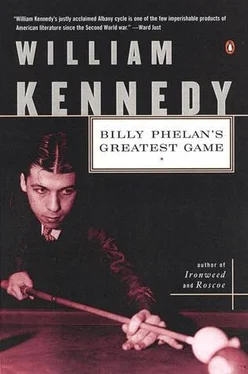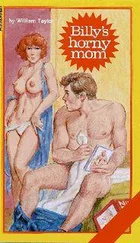Martin Daughterty’s grandmother, Hanorah Sweeney, had been the pastry cook in the Patroon’s kitchen and was famed for her soda bread and fruitcakes, which, everyone said, always danced off their platters and onto the finicky palates of the Patroon and his table companions, among them the Prince of Wales, George Washington’s grandnephew, and Sam Houston.
Arbor Hill and North Albany continued to grow as the railroads came in, along with the foundries, the stove works, the tobacco factory and the famous Lumber District, which started at the Basin and ran northward two and a half miles between the river and the canal. Processing Adirondack logs into lumber was Albany’s biggest business at mid-century, and the city fathers proclaimed that Albany was now the white pine distribution center of the world.
The North End and Arbor Hill grew dense with the homes of lumber handlers, moulders, railroad men, and canalers, and in the winter, when the river and the canal froze, many of them cut ice, fifteen thousand men and boys cutting three million tons from the Hudson in six weeks at century’s end.
They all clustered on streets such as Colonie to live among their own kind, and the solidarity became an obvious political asset. Not the first to notice this, but the first to ride it to local eminence, was the fat, bearded, Irish-born owner of the Beverwyck brewery, Michael Nolan, who in 1878 was elected mayor of the city Coming only three years after the death of the Last Patroon’s widow, this clearly signaled a climactic change in city rule: the Dutch and Yankees fading, the American Irish, with the help of Jesus, and by dint of numbering forty per cent of the city’s population, waxing strong. And eight years ahead of Boston in putting an Irishman in City Hall.
Nolan had lived on Millionaire’s Row, on the east side of Ten Broeck, two and a half blocks from Patsy McCall’s home on Colonie Street. Patsy, who could have lived like a millionaire but didn’t, was in the Irish descendance of political power from Nolan as surely as the Last Patroon had descended from the first; and was a descendant in style as well as power. When Nolan was elected, he swathed his brewery wagons and dray horses in red, white, and blue bunting and saw to it that Beverwyck beer was sold in every saloon in town. Nolan’s example was not wasted on the McCalls. Gubernatorial hopeful Tom Dewey revealed that in October 1938, Stanwix, the McCall beer, was sold in 243 of the city’s 249 taverns.
Billy Phelan knew the Patroon only as a dead word, Nolan not at all. But in the filtered regions of his cunning Irish brain, he knew the McCalls stood for power far beyond his capacity to imagine.
They were up from below. And when you’re up, you let no man pull you down. You roll your wagons over the faces of the enemy.
And who is the enemy?
It’s well you might ask.
Billy pushed the door bell.
Bindy McCall opened the door, smiled, and pulled Billy by the arm, gently, into the house, the first time Billy had entered Patsy’s home. The front hall, leading upstairs and also into both front and back parlors, reminded Billy of the hated house across the street, probably built from the same blueprints.
Bindy held Billy’s arm and led him into the front parlor with its thick oriental rug, its heavy drapes and drawn shades, where a scowling male ancestor of the McCalls looked down insistently on Billy: a powerful face above a neck stretched by a high collar and string tie, a face not unlike Patsy’s, who sat beneath it at a card table, shirtless, reclining in his blue bathrobe in a leather armchair; pads and pencils on the table beside a telephone. An old player piano dominated the room, where Patsy no doubt played and sang the dirties he was famous for, “Paddy McGinty’s Goat,” for one.
Billy had heard him sing that at the Phoenix Club in the North End on a Sunday years ago when the political notables of North Albany turned out for an election rally. Billy went just to watch the spectacle and barely spoke to anyone, never said, Hello Patsy, as he could have, as thousands did whenever the great leader hove into range. Hello Patsy. Billy just listened and never forgot the song and later learned it himself: Patrick McGinty, an Irishman of note, fell heir to a fortune and he bought himself a goat.
A panorama of a Civil War battle, one of Patsy’s well-known interests, hung in a gilded frame over the piano. A pair of brass donkeys as bookends, and with Dickens and Jefferson, a biography of Jim Jeffries, and canvases of Fifth and Eighth Ward voters sandwiched between the butt ends of the animals, sat on top of the piano. On an old oak sofa across from Patsy sat a man Billy didn’t know. Bindy introduced him as Max Rosen, Matt McCall’s law partner.
“You’re a tough man to find,” Bindy said. “We’ve been looking for you.”
“I wasn’t hiding. Just playing cards.”
“We heard about the holdup and what you did. You’re a tough guy, Billy.”
“How’d you hear about it? It just happened.”
“Word gets around. We also heard what you did in the Grand Lunch with that crazy kid.”
“You heard that, too?”
“That, too,” Bindy said.
“Listen, Bin,” said Billy, “I’m really sorry about Charlie.”
“Are you?”
“Sure I am. You got any word on him yet?”
“We got a little. That’s why we wanted to talk to you.”
“Me? What’ve I got to do with anything?”
“Relax. You want a beer?”
“Sure, I’ll have a beer with you, Bin.”
Bindy, shirtsleeves rolled above the elbow, soup stain on shirtfront, no tie, wearing eyeglasses and house slippers, looked like somebody else to Billy, not Bindy McCall, the dapper boss of the street. He looked tired, too, and Patsy the same. Patsy stared at Billy. Max Rosen, in his suit coat, tie up tight to a fresh collar, also stared. Billy in the middle, a new game. He was glad to see Bindy come back with the beer bottle and glass: Stanwix.
“I heard you took a beating today with the nags,” Bindy said, pouring Billy’s beer.
“You hear what I had for breakfast?”
“No, but I could find out.”
“I ate alone, no witnesses.”
“There’s other ways.”
“Yeah.” And Billy took a drink.
“You know where your old man is?” Patsy asked.
“My old man?”
“Yours.”
“No. I don’t know.”
“I heard he was in town,” said Patsy.
“My father in Albany? Where?”
“I didn’t hear that. Somebody saw him downtown today.”
“Goddamn,” Billy said.
“You wanna see him?” asked Patsy.
“Sure I wanna see him. I haven’t saw him in twenty years. Twenty-two years.”
“I’ll see if I can track him down.”
“That’d be terriffic, Mr. McCall.”
“Call me Patsy.”
“Patsy. That’s a terrific thing if you can do that.”
“Maybe you can do something for us.”
“Maybe I can.”
“You heard that kidnap rumor about me,” Bindy said, sitting on a folding chair across the card table from Patsy. The card table Billy worked at was in better shape.
“I heard that last summer.”
“From who?”
“Jesus, I don’t remember, Bin. One of those things you hear at a bar when you’re half in the bag, you don’t remember. I didn’t give it the time of day. Then I remembered it today.”
“And got hot at Louie Dugan for telling me about it.”
“I didn’t expect to have it repeated.”
“We heard the same rumor last year and traced it to a couple of local fellows. And maybe, just maybe, that ties in to Charlie. Do you follow me?”
“I follow.”
“Neither of these fellows are in town and we don’t know just where they are. But they got a friend who’s in town, and that’s why you’re here.”
Читать дальше












